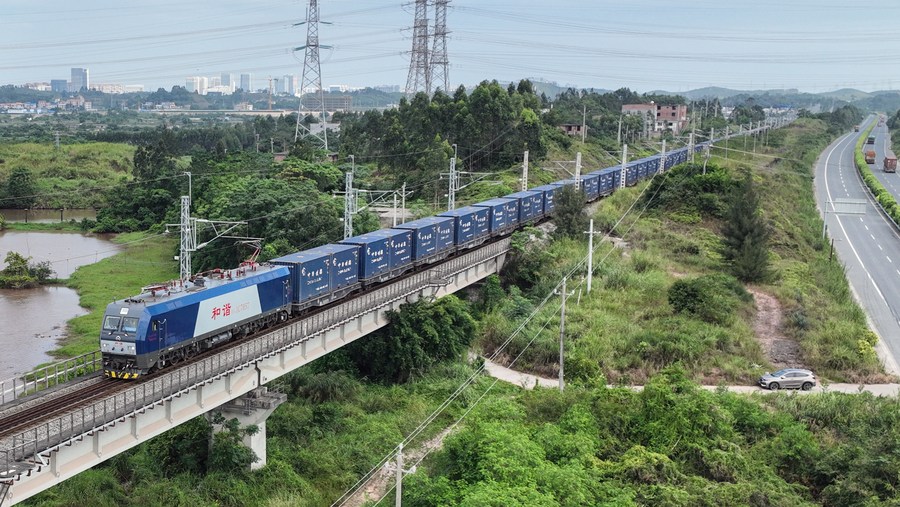MGI sees big role for China in growth race


Think tank: World still interdependent despite value chain reconfiguration
Asia will play a pivotal role amid economic and political uncertainties, and global CEOs seeking growth opportunities over the next decade cannot overlook China, given its gigantic market and status as an essential global trade hub, said a top executive of the McKinsey Global Institute.
The MGI is a private-sector think tank that produces research on business and the economy.
Jeongmin Seong, partner at the MGI, said in an interview with China Daily that Asia is now home to 18 of the world's 20 fastest-growing trade corridors, and 11 of such corridors involve the Chinese mainland.
Asia is also where 13 of the world's 20 largest trade corridors by value are, and the majority - 56 percent in 2021 - of the value flowing through the 20 largest global trade corridors involves the Chinese mainland, Seong said.
The world's largest bilateral trade corridor runs between China and the United States. Though the US-China trade has been slowing amid geopolitical uncertainties, the rise of a new trade triangle involving China, emerging Asia (or Southeast Asia) and the US demonstrates that the world still remains interconnected and interdependent, Seong said.
"It will be very difficult to unwind this value chain overnight. The value chain can move, but it will take time. We analyzed the movements of the value chain across different sectors and different geographies. The magnitude of the movement of China, in terms of the share it gains or loses in exported value-added share, was mostly 1 to 1.5 percentage points," Seong said.
According to the MGI, Asian countries' trade with China grew rapidly. For instance, trade between China and Vietnam grew by 16 percent annually, and that between China and Malaysia by 13 percent between 2018 and 2022.
"So, the value-added share of China among the US final consumption has been relatively stable. There is a reconfiguration of the value chain, but the world remains interconnected and interdependent," Seong said.
A report released by HSBC earlier this year also showed similar findings. In Asia, intermediate goods imports from the Chinese mainland account for close to 20 percent of all component imports on average. Meanwhile, exporters in the Association of Southeast Asian Nations increasingly rely on components from the Chinese mainland rather than other sources, the report said.
Bai Ming, a researcher at the Chinese Academy of International Trade and Economic Cooperation, said this trend means that despite Washington's attempts to relocate supply chains away from China to places such as Southeast Asia, the countries in the region now rely on China for parts and components more than ever before. "It is impossible for the US to rid its supply chains of China's influence."
According to Seong of the MGI, there are three strategies that foreign companies could use to manage supply chains in China.
"I think the first strategy, especially for foreign companies with substantial exposure to China, is 'in China for China' because China is massive, and there will be meaningful growth and innovation opportunities here. If you want to become a credible global player, China still matters," Seong said.
A case in point is the US tech company HP Inc. Jason Juang, managing director of HP Greater China, said: "HP has been in China for 40 years. We have grown in China, with China, and for China … China's growing market, rapid technological development and advancing industry are paving the way for long-term, sustainable growth."
The second strategy is one of regionalization. "The intra-regional trade share among Asian economies is about 60 percent, and China plays a pivotal role as a connecting platform for numerous Asian economies. And because of the Regional Comprehensive Economic Partnership, the regional collaboration could be triggered a lot more. Therefore, you can think about building an Asia-wide value chain as well," Seong said.
The third strategy is to include China as part of global supply chains. "Globally, there are a very limited number of suppliers in certain industries. In this case, China will continue to play a very critical role in the global value chain," Seong said.
masi@chinadaily.com.cn




































